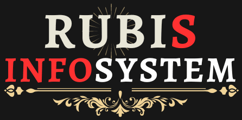Boost Your Website Traffic with Quality Content Strategies from Rubis Blog
Java 8 Interview Questions for 5 Years Experience: This list focuses on common interview questions for Java developers with 5 years of experience, emphasizing key Java 8 features. These questions are designed to gauge your understanding of concepts and your ability to apply them in real world scenarios. 1) Lambda Expressions: Explain what lambda expressions are and their advantages. (Understanding the syntax and benefits of concise, functional code) Write a lambda expression to sort a list of employees by salary.* (Demonstrating practical application of lambdas) Compare and contrast functional interfaces with anonymous inner classes.* (Showcasing knowledge of functional programming paradigms) 2) Streams API: Describe the purpose of the Streams API and how it simplifies data processing.* (Understanding the core functionality and advantages of stream processing) Write a stream pipeline to filter and map a list of numbers.* (Demonstrating practical use of stream operations) Explain the difference between intermediate and terminal stream operations.* (Understanding the nature and purpose of stream operations) 3) Optional Class: Explain the purpose of the Optional class and how it helps prevent NullPointerExceptions.* (Understanding the problem Optional solves and its benefits) Write code demonstrating how to handle the presence or absence of a value using Optional.* (Demonstrating practical application of Optional) What are the advantages of using Optional over null checks?* (Highlighting the benefits of using Optional for code clarity and safety) 4) Method References: Explain what method references are and how they relate to lambda expressions.* (Understanding the relationship between method references and lambdas) Provide an example of a method reference and explain its advantages.* (Demonstrating practical application of method references) What are the different types of method references and when to use each?* (Understanding the different types and their appropriate use cases) 5) Date and Time API: Describe the new Date and Time API in Java 8 and its advantages over the legacy Date class.* (Understanding the benefits of the new API) Write code to create a LocalDateTime object and format it to a specific string representation.* (Demonstrating practical application of the new API) Explain the concepts of Zones, Durations, and Periods in the new API.* (Demonstrating a solid understanding of the core concepts) 6) Collections: Describe the new features in the Java 8 Collections framework, such as the Collection.removeIf() method.* (Highlighting the new features and their benefits) Write code to iterate over a Map using forEach() and a lambda expression.* (Demonstrating practical use of new collection methods) Explain the difference between a List and a Set.* (Understanding the core difference between these data structures) 7) Default and Static Methods in Interfaces: Explain the concept of default and static methods in interfaces.* (Understanding the purpose and advantages of these features) Provide an example of using a default method in an interface.* (Demonstrating practical application of default methods) What are the benefits of using default and static methods in interfaces?* (Highlighting the advantages for interface evolution and code reuse) 8) Concurrency: Describe the features of the Fork/Join framework in Java 8.* (Understanding the purpose and advantages of the framework) Explain the difference between CompletableFuture and Callable.* (Demonstrating a thorough understanding of concurrency tools) Write code using the ExecutorService to execute tasks concurrently.* (Demonstrating practical application of concurrency concepts) 9) Java 8 Features for Web Development: Explain how Java 8 features are used in web development, such as with Spring Boot and WebFlux.* (Understanding the integration of Java 8 with frameworks) Describe the advantages of using Java 8 features like lambdas and streams in web development.* (Highlighting the benefits for building reactive and efficient web applications) 10) Best Practices and Design Patterns: Discuss best practices for using Java 8 features effectively.* (Demonstrating knowledge of best practices for writing clean and efficient code) Explain how design patterns like the Strategy pattern can be implemented using Java 8 features.* (Showcasing the ability to leverage Java 8 for design patterns) These questions are just a starting point. The specific questions asked in an interview will vary depending on the role and company. However, by preparing for these key Java 8 concepts, you'll be well equipped to demonstrate your proficiency and impress potential employers.
5/8/20241 min read


Quality content matters
Quality
Enhancing your content for more visitors today.
Engage
Connect
+91 8796550580
© 2024. All rights reserved.
